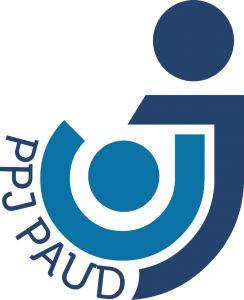KATARSIS MELALUI KEGIATAN MENULIS EKSPRESIF UNTUK MENGATASI STRESS MENGAJAR PASCA PANDEMI PADA GURU PAUD
DOI:
https://doi.org/10.30736/jce.v6i2.1433Keywords:
Katarsis, Menulis Ekspresif, Stres mengajar,Abstract
Setelah pandemi dinyatakan berakhir dan kehidupan normal baru berjalan, dinamika kegiatan belajar mengajar yang dihadapi guru PAUD tidak serta merta kembali normal seperti sebelum masa pandemi. Tantangan dan penyesuaian yang dihadapi bahkan bisa jadi menjadi lebih banyak, dan berpengaruh pada kondisi psikologis guru sebagai pengajar. Kondisi ini pun berpotensi menjadi stressfull event yang bisa berpengaruh pada well being serta kualitas kesehatan mentalnya, sehingga diperlukan suatu strategi untuk mengatasi kondisi tersebut. Penelitian ini merupakan penelitian deskriptif kuantitatif yang melibatkan guru PAUD sebagai subyek penelitiannya. Tujuan penelitian ini adalah untuk mendeskripsikan: 1) kondisi tingkat stress yang dihadapi oleh guru PAUD pasca pandemic, 2) efektifitas kegiatan menulis ekspresif sebagai salah satu bentuk teknik katarsis dalam membantu guru PAUD mengatasi stressfull event yang dihadapi. Teknik pengumpulan data yang digunakan dalam penelitian ini antara lain: kuesioner tingkat stress, FGD, dan wawancara. Analisis data menggunakan analisis data kuantitatif deskriptif yang memaparkan presentase kondisi stress yang dihadapi guru sebelum dan setelah melaksanakan kegiatan menulis ekspresif. Hasil penelitian menunjukkan bahwa 1) 35% subyek penelitian mengalami tingkat stress ringan, dan 65% mengalami tingkat stress sedang; 2) 90% subyek mengalami penurunan tingkat stress setelah melakukan kegiatan menulis ekspresif. Sehingga dapat disimpulkan bahwa kegiatan menulis ekspresif dapat dijadikan sebagai alternatif solsi untuk membantu mengatasi kondisi stres mengajar pada guru.References
Irna. (2021). Tantangan dan Resiliensi Guru PAUD dalam Masa Pandemi Covid- 19. Fashco: Jurnal Kajian Pendidikan Dan Sosial Kemasyarakatan, 11(1), 71–78.
Morgan, H. (2020). Best Practices for Implementing Remote Learning during a Pandemic. The Clearing House: A Journal of Educational Strategies, Issues and Ideas, 93(3), 135–41. https://doi.org/10.1080/00098655.2020.1751480.
N. Qonitatin, S. Widyawati, and G. Y. A. (2012). PENGARUH KATARSIS DALAM MENULIS EKSPRESIF SEBAGAI INTERVENSI DEPRESI RINGAN PADA MAHASISWA. Jurnal Psikologi, 9(1). https://doi.org/https://doi.org/10.14710/jpu.9.1.
Pennebaker, J. W. (2018). Expressive Writing in Psychological Science. Perspectives on Psychological Science, 13(2), 226–229. https://doi.org/10.1177/1745691617707315
Sarafino, E. P., & Smith, T. W. (2016). Health psychology biopsychosocial interactions. In Journal of Psychosomatic Research (9th ed., Vol. 35, Issues 4–5). Wiley. https://doi.org/10.1016/0022-3999(91)90058-v
Suparman. (2018). IDENTIFIKASI GEJALA STRES PADA GURU TINGKAT SEKOLAH DASAR DI SEKOLAH LENTERA HARAPAN TANGERANG. Jurnal Pendidikan Dompet Dhuafa, 8(1), 7–12. https://osf.io/yq3m4/download
Vilzati; Lita; IBRAHIM, M. (2016). PERSEPSI GURU TENTANG STRES KERJA, COUNTERPRODUCTIVE WORK BEHAVIOR (CWB), DAN NEGATIVE AFFECTIVITY (Studi Pada Guru Sekolah Menengah Pertama Di Banda Aceh). SI-MEN (Akuntansi Dan Manajemen) STIES, 7(2). http://jurnal.stiesabang.ac.id/index.php/simen/article/view/59
Weken, M. E., Mongan, A. E., & Kekenusa, J. S. (2020). Hubungan antara Beban Kerja, Konflik Peran, dan Dukungan Sosial dengan Stres Kerja Pada Guru di Sekolah Menengah Atas Negeri 1 Manado Pada Masa Pandemi Covid-19. Indonesian Journal of Public Health and Community Medicine, 1(4), 80–88. https://doi.org/https://doi.org/10.35801/ijphcm.1.4.2020.32139
Handayani, T., Sirait, D., Faridha. (2021). Manjemen Stres di Kalangan Guru TK Pada Masa Pandemi Covid-19 di TK Janna Al-Baqi Medn. Prosiding Seminar Hasil Pengabdian 2021. Universitas Muslim Nusantara Al Washliyah. Diakses dari https://e-prosiding.umnaw.ac.id/index.php/pengabdian/article/view/634/618
Published
How to Cite
Issue
Section
License
Please find the rights and licenses in JCE (Journal of Childhood Education). By submitting the article/manuscript of the article, the author(s) agree with this policy. No specific document sign-off is required.
1. License
Use of articles will be governed by the Creative Commons Attribution - ShareAlike license as currently displayed on Creative Commons Attribution-ShareAlike 4.0 International License.
2. Author(s)' Warranties
The author warrants that the article is original, written by stated author(s), has not been published before, contains no unlawful statements, does not infringe the rights of others, is subject to copyright that is vested exclusively in the author and free of any third party rights, and that any necessary written permissions to quote from other sources have been obtained by the author(s).
3. User Rights
JCE (Journal of Childhood Education)'s spirit is to disseminate articles published are as free as possible but there is a little payment for publication. Under the Creative Commons license, JCE (Journal of Childhood Education) permits users to copy, distribute, display, and perform the work for commercial purposes. Users will also need to attribute authors and JCE (Journal of Childhood Education) on distributing works in the journal and other media of publications.
4. Co-Authorship
If the article was jointly prepared by more than one author, any authors submitting the manuscript warrants that he/she has been authorized by all co-authors to be agreed on this copyright and license notice (agreement) on their behalf, and agrees to inform his/her co-authors of the terms of this policy. JCE (Journal of Childhood Education) will not be held liable for anything that may arise due to the author(s) internal dispute. JCE (Journal of Childhood Education) will only communicate with the corresponding author.
5. Miscellaneous
JCE (Journal of Childhood Education) will publish the article (or have it published) in the journal if the article’s editorial process is successfully completed. JCE (Journal of Childhood Education)'s editors may modify the article to a style of punctuation, spelling, capitalization, referencing and usage that deems appropriate. The author acknowledges that the article may be published so that it will be publicly accessible and such access will be free of charge for the readers as mentioned in point 3.
JCE (Journal of Childhood Education) by Universitas Islam Lamongan is licensed under a Creative Commons Attribution-ShareAlike 4.0 International License.Based on a work at http://journalfai.unisla.ac.id/index.php/jce.













